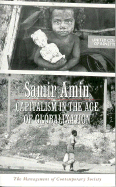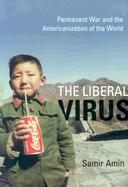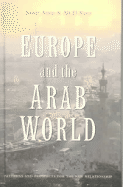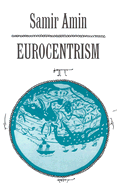Samir Amin depicts a world in
which NATO has taken over the role of the United
Nations, in which US hegemony is more or less complete,
in which millions are condemned to die in order to
preserve the social order of the US, Europe and Japan.
Amin's analyses of the Gulf War, the wars in former
Yugoslavia and the war in Central Asia reveal the scope
of US strategic aims. He argues that the political and
military dimension of US dominance is as significant as
US economic preponderance in determining the future of
capitalist development.
Capitalism in the
Age of Globalization: The Management of Contemporary
Society

About this title:
Samir Amin is one of the world's most profound thinkers
about the changing nature of capitalism, North-South
relations and issues of development. Here he provides us
with a powerful understanding of the new and very
different era that capitalism has now entered with the
collapse of the Soviet model, the triumph of unfettered
market forces and accelerating globalization. His
analysis spans the increasingly differentiated regions
of the South and the former Eastern bloc countries, as
well as Western Europe. He integrates his economic
arguments about the nature of the crisis with political
arguments based on his vision of human history not as
simply determined by material realities, but as the
product of social responses to those realities. His
innovative analysis of the rise of ethnicity and
fundamentalism as consequences of the failure of the
ruling classes in the South to alter the unequal terms
of globalization is particularly compelling, as is his
deconstruction of the Bretton Woods institutions -
notably the IMF and the World Bank - as managerial
mechanisms protecting the profitability of capital.
Looking to the longer term, Amin rejects a passive
acceptance of the inevitability of globalization in its
present polarizing form, or the simple-minded equation
of development with expansion of the market. Instead, he
argues for each society being allowed to negotiate the
terms of its interdependence with the rest of the global
economy in order that essential national developments
can be pursued in a pluralistic world.
The Liberal Virus:
Permanent War and the Americanization of the World

About this title:
Samir Amin's ambitious new book argues that the ongoing
American project to dominate the world through military
force has its roots in European liberalism, but has
developed certain features of liberal ideology in a new
and uniquely dangerous way. Where European political
culture since the French Revolution has given a central
place to values of equality, the American state has
developed to serve the interests of capital alone, and
is now exporting this model throughout the world.
American imperialism, Amin argues, will be far more
barbaric than earlier forms of imperialism, pillaging
natural resources and destroying the lives of the poor.
The Liberal Virus examines the ways in which the
American model is being imposed on the world, and
outlines its economic and political consequences. It
shows how both citizenship and class consciousness am
diluted in "low-intensity democracy" and argues instead
for democratization as an ongoing process--of
fundamental importance for human progress--rather than a
fixed constitutional formula designed to support the
logic of capital accumulation. In a panoramic overview,
Amin examines the objectives and outcomes of American
policy in the different regions of the world. He
concludes by outlining the challenges faced by those
resisting the American project today: redefining
European liberalism on the basis of a new compromise
between capital and labor, re-establishing solidarity
among the people of the South, and reconstructing an
internationalism that serves the interests of regions
that are currently divided against each other.
Specters of
Capitalism: A Critique of Current Intellectual Fashions

About this title:
Samir Amin, one of the most influential economists
today, has produced another groundbreaking work.
Spectres of Capitalism cuts through the current
intellectual fashions that assume a global capitalist
triumph, taking the occasion of the 150th anniversary of
Marx and Engels's classic tract, the Communist
Manifesto, to focus upon the aspirations of the
destitute millions of the post-Cold War era.
In this succinct theoretical text, Amin examines the
changing notion of crisis in capitalism; misconceptions
of the free market model; the various distortions of
Marx's method; the role of culture in revolutions; the
decline of the "law of value" in economics; the
philosophical roots of postmodernism; how
telecommunications affect ideology; and the myth of
"pure economics."
Amin has a broad following among students of
economics, who value his analyses of the intricacies of
capitalist development, both in the major powers and in
the third world. The comprehensive scope of this work
will also attract readers as a contribution to the
international dialogue of intellectuals commemorating
the Communist Manifesto.
Europe and the Arab
World: Patterns and Prospects for the New Relationship
by Ali El Kenz and Samir Amin

About this title:
This volume focuses on an initiative, originally
launched by the European Union in Barcelona, to put its
relations with Arab countries of the Mediterranean (and
Gulf) regions on a new footing of equality and mutually
beneficial cooperation. The volume provides a detailed
empirical account of the initiative as well as an
historically contextualized, intellectually critical and
politically perceptive analysis of the various realities
impacting on this initiative. Among the many obstacles
identified are the overriding and economically negative
impact of globalized capitalism, and the determination
of the United States to impose its own hegemonic
political objectives on the Middle Eastern region.
Eurocentrism

About this title:
This book is a provocative and compelling critical
account of the historical, ideological, political, and
economic order of the present world defined by the
author as "Eurocentrism."According to Amin, Eurocentrism
is the world view fabricated by the domination of
Western capitalism that claims European culture reflects
the unique and most progressive manifestation of the
metaphysical order of history. Amin convincingly
explains that Eurocentrism, thus understood, is an
ideological distortion, an incredible mythology, and an
historical and moral travesty. Eurocentrism.
illegitimately appropriated Greek rationality and
Christianity to legitimize and justify its newly created
capitalistic social order; its economic, political,
cultural, and military conquest of the world; and its
exploitation of non-European humanity. He, then,
explains how Eurocentrism has created and maintained
worldwide monetary inequity and denial of all but
European values, cultures, and ethnicities. Given this
situation, Amin considers two possible options open to
Third World (non-European) countries, though,
ultimately, he rejects both as inappropriate. The first
option is to return to ancient cultural roots as
expressed in Islamic Fundamentalism or diverse forms of
Third World nationalism. The second is to accommodate
socio-cultural economic pluralism. The former option is
rejected as reactionary and blind to the scientific view
of the world and its progressive consequences. The
latter is inappropriate because its character of
provincialism invites inevitable and insolvable
conflicts among nations in the global community. Thus,
Amin believes that in spite of its problems, capitalism
reflects a certain universal rationality. He, therefore,
calls for a new economic, cultural, and political world
order founded on "the socialist universalism," a
non-European, universal, and rational paradigm of world
order able to overcome the contradiction inherent in
capitalist universalism. In this enlightening and
provocative essay, Amin provides a synoptic but clear
and refreshing view of world history and present
economic and political conditions while he forces us to
reassess from a non-Eurocentric, objective perspective.